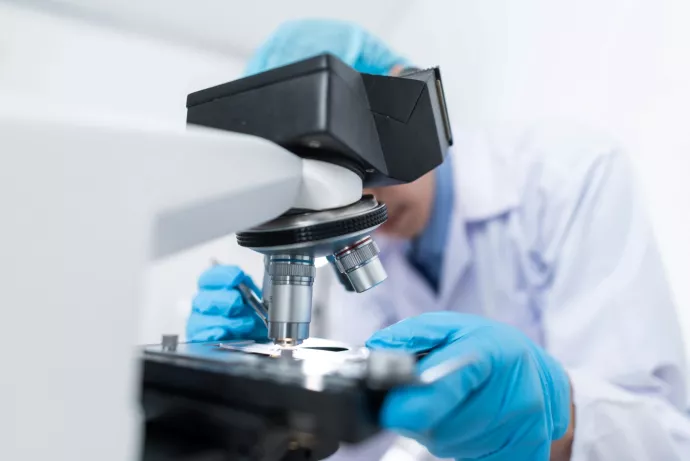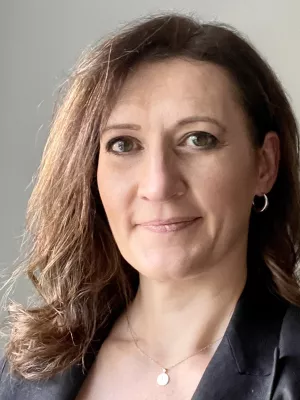
‘Game-changing’ opportunity: SpinUp names kidney therapy startup Atorvia as first Blue Ticket winner
Acute kidney injury can be devastating for patients – resulting in chronic kidney disease, end-stage renal disease, stroke and heart attack. The World Health Organization estimates that about 78 million people develop it every year, and there’s currently no way to effectively treat it.
But Atorvia, an emerging woman-led biotech company, is on a mission to change that. Now, thanks to University of Toronto Mississauga’s Blue Ticket program, sponsored by Merck (known as MSD outside of the United States and Canada), Atorvia has the space, financial support and mentorship opportunities to further develop a drug that would treat this debilitating condition.
“This opportunity is game-changing for us,” says Jane Lapon, founder of Atorvia. “It will help us to accelerate faster.”
The life sciences company was recently named the first-ever winner of the Blue Ticket program at UTM’s SpinUp, U of T’s first wet lab incubator. UTM’s vision for the Blue Ticket program is to power the next generation of global health innovators and innovation from Mississauga. Merck’s support for the inaugural iteration of the program grants Atorvia a free one-year membership at SpinUp, an unrestricted upfront cash prize, and mentorship by Merck’s scientific and business leaders.
“Strong partners like Merck enable us to enhance the support SpinUp offers to propel promising early-stage startups,” says Kent Moore, vice-principal research at UTM.

“We're delighted to be working with Merck to help drive Atorvia’s innovative approaches forward through Merck’s mentorship support and SpinUp’s wet lab capabilities and programming.”
Lapon says the support will help Atorvia meet a critical need when it comes to acute kidney injury – which is often a risk for patients undergoing cardiac surgery.
During cardiac surgery, patients experience a loss of blood flow, resulting in no blood flow to the kidneys, which can cause damage. There is no effective therapy for acute kidney injury, and the only option for patients is supportive care like dialysis – which requires patients to arrange their lives around lengthy hospital-based treatment sessions, often for their entire lives.
The medicine that Atorvia is developing at SpinUp could be administered before a patient undergoes cardiac surgery, and could stop the kidneys from failing.
Lapon says the company has done preliminary experiments on the medicine, but they needed a space to conduct further lab work to develop it. Throughout the year at SpinUp, Lapon says the team will rerun their previous experiments and conduct new ones to validate the medicine and get it ready to file with health authorities.
As a biotech startup, Lapon says it can be challenging to find accessible and affordable lab space. The Blue Ticket program, she says, has helped the company overcome that barrier by providing access to outstanding wet lab space, equipment and expertise.
“The fact that SpinUp was there with availability, and was subsidized, was fantastic,” Lapon says, adding that the program also gives the startup access to opportunities that would otherwise be difficult to find. “Because we’re getting the mentoring with Merck as well, it means that we can develop this medicine and hopefully get it to patients sooner. We’ve got this expertise to help us along the way.”
She adds that it can be a “very lonely journey” as a startup, but that the mentorship and financial support provided by Merck, as well as SpinUp’s vast network, will provide Atorvia with resources and expertise.
“One of the advantages of SpinUp is that we’ve got access to University of Toronto researchers and the potential to then partner with some of the researchers, as well as students and co-op students,” Lapon says. “With the resources we have, there is a very high probability that we would have this ready to go into trials during our first year at SpinUp.”
